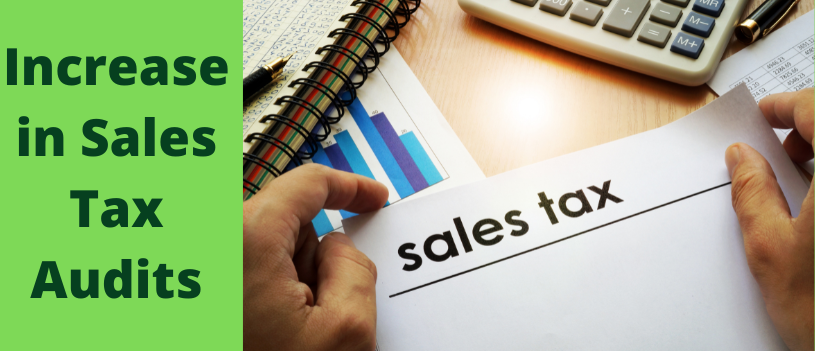Although COVID-19 took a toll on our economy, multiple states fared well with tax revenue during this time. Due to consumer spending remaining resilient during the pandemic, states were able to see their tax revenue remain steady or increase. Unfortunately, thanks to inflation concerns and supply issues, many states are now anticipating a reduction in sales tax revenue.
An easy way for states to counteract the loss of tax revenue is by conducting sales and use tax audits. Almost all companies will undergo an audit at some point. A sales tax audit helps a state determine whether your business has collected and paid the correct amount of tax owed for taxable transactions.
There are a few “hot” areas that states will most likely choose to focus on as they conduct their audits. For example, it has been found they will focus on credit card purchases with no invoice backup, software, information services, remote seller sales tax nexus, sales tax exemptions, office buildouts, and in-state sales of product through marketplace facilitators.
A few states across the US have been identified as being more aggressive with audits compared to others. New York, California and Ohio are increasing the number of sales tax audits that are conducted in order to regain their lost revenue.
For example, California is being aggressive by sending letters to Amazon sellers making them aware they may need to pay years of uncollected sales taxes and that these business owners could potentially face audits unless they are willing to come forward.
One main reason that states are successful with these audits is because it can be easy for businesses to make errors. For example, you can easily make a mistake in calculating the taxes you owe by using the incorrect rates. It can definitely be simple for companies to make errors as there are roughly 500 rate changes across the country that take place each year.
If you find yourself nervous that your business may be audited, below are a few ways to reduce your business’s sales tax exposure:
Before an audit:
- Ensure that you determine where your business has exposure. Get a nexus study completed in order to document what states your business has activities in.
- You can also consider available state tax voluntary disclosure programs in states where nexus exists but returns have not been filed. These programs allow individuals to come forward on a no-name basis as well as remove prior year tax exposure and penalties.
- Review the taxability of the products and services that you sell. You can prepare a taxability matrix in each state that you provide products and services.
- Be sure to review and compare the gross sales reported on your sales tax returns filed to the gross revenue reported on your federal tax return. You will need to be able to explain any discrepancies.
- Have your purchase invoices readily available. If you use company credit cards, you should also keep invoices for these purchases.
- Look at your business’s exemption and resale certificate retention situation. You will need to obtain any missing certificates as well as ensure those that have been obtained are completed, valid, and signed.
During an audit:
- You do not want to go through this alone. Be sure to consult with a tax professional.
- When an auditor finds that tax was not paid on a large one-time purchase and they include this transaction as taxable in the sample period, you should request that this be assessed as a unique transaction separate from the sample. This will hopefully help reduce your extrapolated sales tax liability.
- If tax and penalties are assessed, you can request that penalties be abated. Some states require taxpayers to request this in writing as well as show their reasoning for underpaying taxes.
If you have any additional questions regarding how you may be impacted by a sales tax audit, please consult with your tax professional.
https://www.cpapracticeadvisor.com/2022/05/19/how-to-protect-a-business-as-sales-tax-audits-surge/
